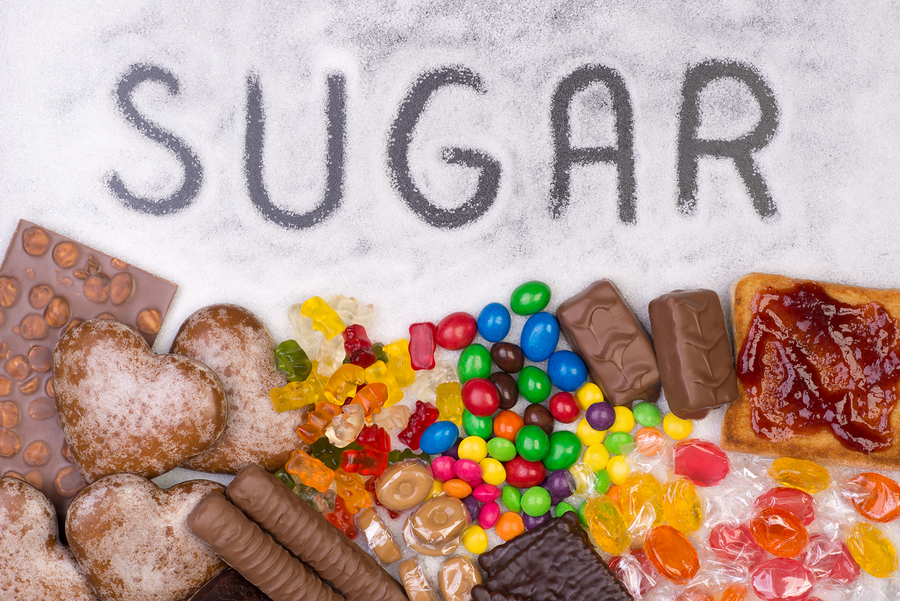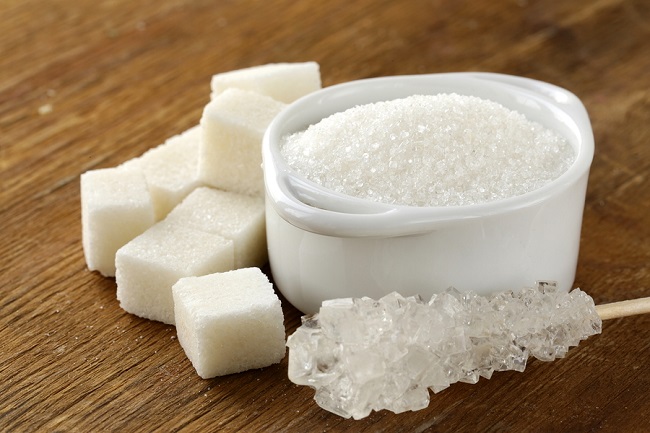- Make It Yourself Lavender Heart-Shaped Bath Bombs!
- 20 Things You Never Knew About “Down There”
- 12 Best Foods For Those Suffering From Arthritis Pain
- 12 Personal Hygiene Mistakes Almost Everyone Makes (Mom Never Told You About #4!)
- 15 Medicinal Plants And Herbs From The Cherokee People
- 12 Mind-Blowing Benefits Of Drinking Coconut Water During Pregnancy
- 12 Outstanding Winter Foods That Won’t Fatten You Up Like A Christmas Turkey
Why We Crave This One Thing When We Feel Stressed Out

Photo credit: bigstock.com
If you have ever had a terrible day at work, then come home and ate a pint (or more!) of Chunky Monkey ice cream, this study will come as no surprise to you. The University of California At Davis recently conducted a study finding that 80 percent of people who answered a survey reported that they ate more sweets when they felt stressed out. This study was published in the Journal of Clinical Endocrinology and Metabolism.
Scientists found that sugar diminished the physiological responses that are normally made in the brain during times of stress. Since our modern day world has us living in even more stressful situations, is it any wonder that more and more people are turning to sugary treats?
This study involved 19 women between the ages of 18 and 40. It had three separate stages: Stage one had the women spend three days eating a low sugar diet at the facility. Saliva samples were taken and MRIs were given. Stress was induced through timed mathematics testing. The women were then discharged and told to consume sweetened drinks three times each day. Half of the beverages were diet drinks, and the remainder had regular sugar-filled sodas. After 12 days the women returned to the research facility and had their saliva samples taken once more, as well as another set of MRIs.
The group of women who had regular soft drinks had higher levels of activity in the left hippocampus, which is the area that is sensitive to chronic stress, as well as vastly lower levels of the stress hormone cortisol when compared to the group that received diet drinks.
Chronic stress is a growing problem for Americans. This might be the explanation for America’s growing obesity problem as well. Just last year, more than 77 percent of Americans surveyed stated that they regularly experienced physical symptoms that were caused by stress, according to the American Institute of Stress. Researchers warn that sugar should not be seen as a means of lowering stress. Poor nutrition is one of the top causes of stress. Poor nutrition is defined as a diet that contains great quantities of processed foods, refined sugars, grains, as well as lots of caffeine.
Although you might feel better after downing that giant banana split, eating a lot of sugar won’t help you feel better or less stressed out in the long run. Eating a healthier diet will have a very positive effect on both your physical and mental well-being.
The University of Cincinnati found similar results nearly 10 years ago when they found that lab rats coped with stress better when they were given sugar. At a meeting for the Society of Neuroscience, the researchers presented their findings and stated that although artificial sweeteners might help a bit, there was really nothing like good old cane sugar to calm down the body’s stress response.
Continue to Page 2

Photo credit: bigstock.com
Eat Right to Really Control Stress
Many people turn to comfort foods, such as mac and cheese or pizza when they are stressed out, but the truth is that these are some of the worst choices you could make. These kinds of high fat, high sugar foods make you feel lethargic and less able to deal with stress than before.
Let’s take a look at the best foods you can eat when you feel stressed out:
- Sweet potatoes
- Stir-fried vegetables and rice
- Citrus fruits
- Minestrone soup
- Acorn squash
- Carrots
- Blueberries
- Leafy green vegetables
- Pasta
- Beans
- Lentils
The foods you should avoid when are stressed are basically what you think they are:
- Caffeinated drinks
- Hamburgers or other fatty meats
- Cheese and cheese dishes
- Sugar and sugary treats such as ice cream
- Fast food or junk foods such as potato chips or French Fries
- Bread
- Cookies
READ ALSO: 12 Incredible Foods To Fight Stress (Gotta Love #10!)
Don’t allow sugar to control your life. Eating sugar to cope with stressful situations will soon trigger the habitual overconsumption of sugar, leading to weight gain and numerous health problems.
Try yoga or mediation rather than food to help deal with stressful situations.
References:
































